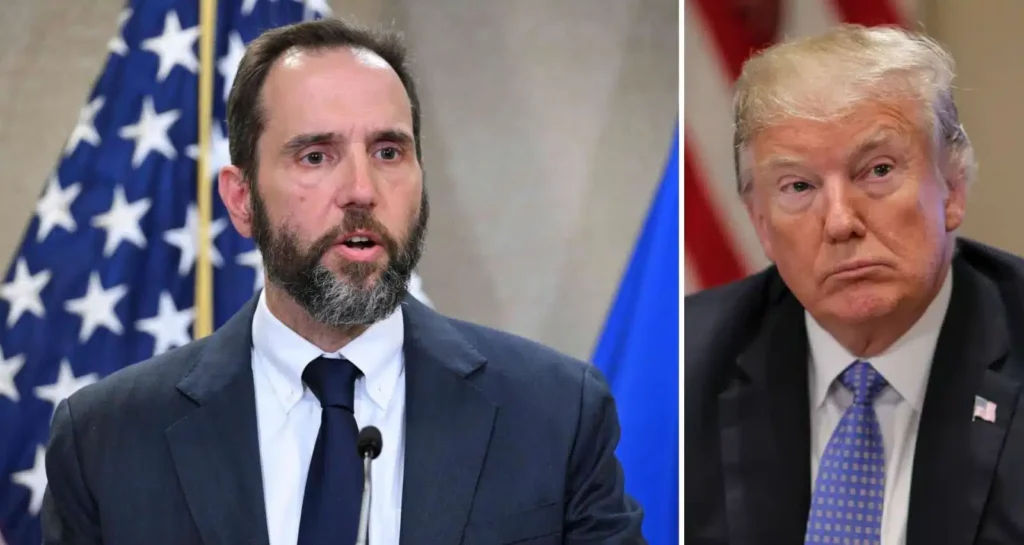A federal grand jury in Washington, D.C., has reindicted Donald Trump on four felony charges related to his alleged attempts to overturn the 2020 presidential election results. The 36-page indictment, filed by Special Counsel Jack Smith on Tuesday, seeks to address changes in the case against Trump following the Supreme Court’s recent decision, which affirms broad immunity for presidents regarding actions taken in their official capacity.
Despite the changes, the superseding indictment continues to charge Trump with the same four crimes, including conspiracy to defraud the United States. The changes indicate that Smith believes the Supreme Court’s ruling will not substantially impede the prosecution’s case against Trump. The updated indictment appears to minimize the direct link between Trump’s actions and his official presidential duties, instead emphasizing the political and personal aspects of his behavior following the election and on January 6, 2021.
The reindictment highlights that Mike Pence, then-Vice President, was also Trump’s running mate during the time Trump pressured him to interfere with the election certification. It notes that the January 6, 2021, rally was privately funded and organized and underscores Trump’s frequent use of his Twitter account for personal matters. The new indictment notably omits references to several high-ranking officials who had previously told Trump that his election fraud claims were baseless. By making the changes, Smith appears to be attempting to align with the Supreme Court’s guidance on prosecuting a sitting president for actions tied to their official duties.
The reindictment also omits any mention of former Justice Department official Jeffrey Clark, who was previously identified as an alleged co-conspirator. Clark was involved in discussions about sending letters to local election officials alleging fraud in the 2020 election. However, Trump ultimately abandoned that plan following strong objections from senior Justice Department officials.
Earlier this month, Smith made a new filing in his case, the so-called “election interference” case against Trump with the D.C. Circuit Court. In the filing before U.S. District Judge Tanya Chutkan, Smith requested a delay in the case. Smith’s team noted that it still had to digest a previous U.S. Supreme Court ruling that appeared to favor Trump.
Originally, Chutkan had set a hearing for August 16, but Smith has asked for additional time. He proposed submitting a schedule for pretrial proceedings by the end of the month, which would push back any significant actions until September.
“Although those consultations are well underway, the Government has not finalized its position on the most appropriate schedule for the parties to brief issues related to the decision,” prosecutors wrote in the filing. “The Government therefore respectfully requests additional time to provide the Court with an informed proposal regarding the schedule for pretrial proceedings moving forward.” The filing goes on to note that Trump’s defense team did not oppose extending the date.
The request marks a shift from Special Counsel Jack Smith’s earlier strategy of accelerating the case. Since the start, Smith’s team has prioritized speeding up the proceedings. In December, Smith sought an expedited review of the presidential immunity issue by the Supreme Court, but the justices chose not to address it before the appeals court had its chance.
On December 1, Chutkan denied Trump’s motion to dismiss the case based on presidential immunity. His subsequent appeal led to a significant multi-month delay in the case and the cancellation of the originally scheduled March trial date. The Supreme Court found 6-3 last month that presidents are immune from prosecution for official acts taken in office.
“Under our constitutional structure of separated powers, the nature of Presidential power entitles a former President to absolute immunity from criminal prosecution for actions within his conclusive and preclusive constitutional authority,” the court held. “And he is entitled to at least presumptive immunity from prosecution for all his official acts. There is no immunity for unofficial acts.” The justices left it to lower courts to decide what actions Trump took constituted official and non-official actions.



